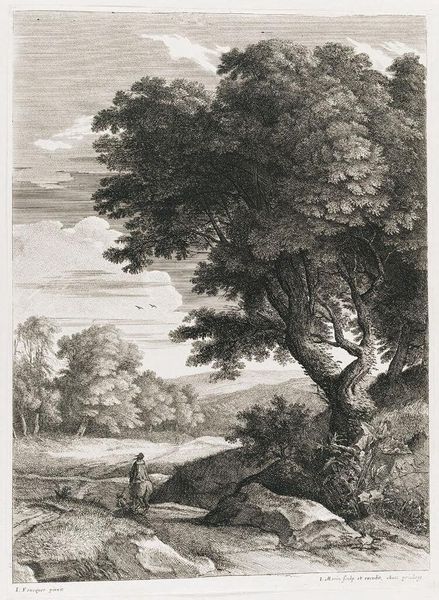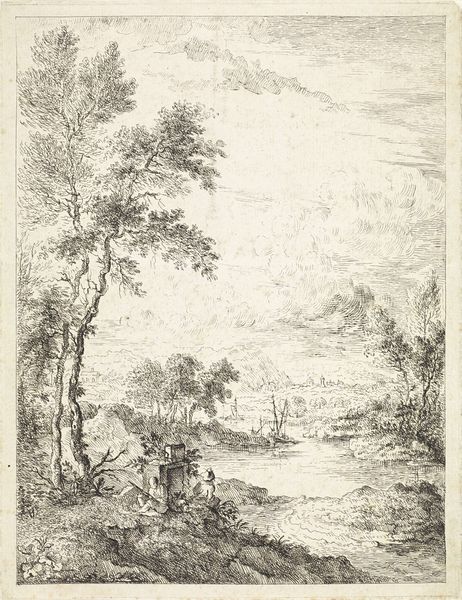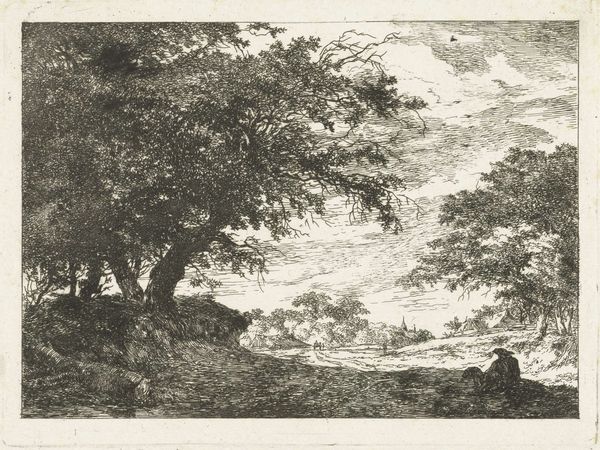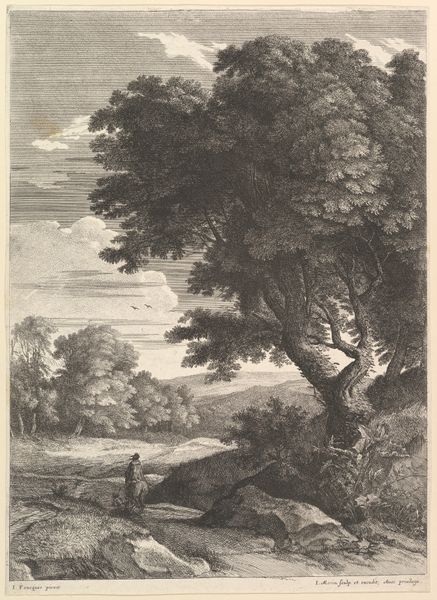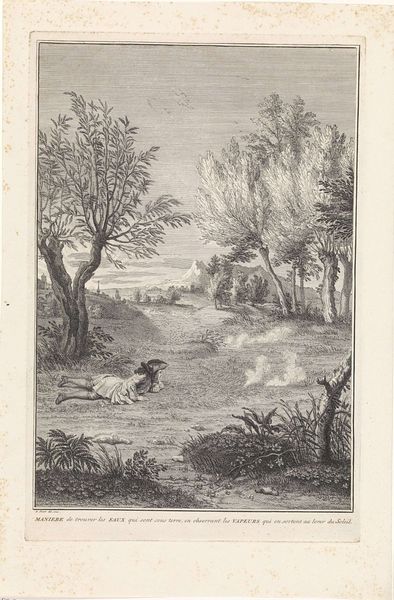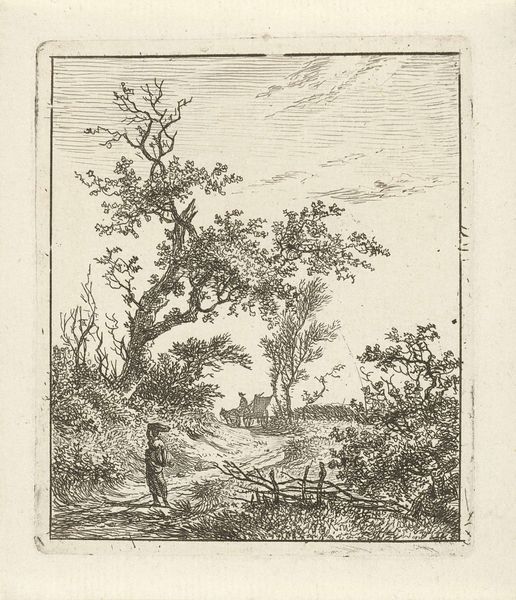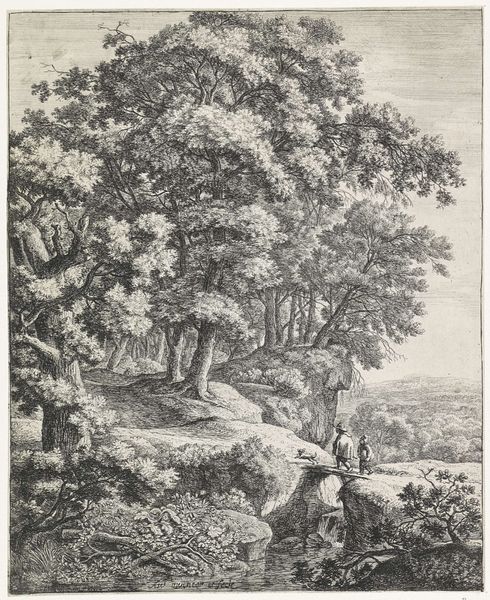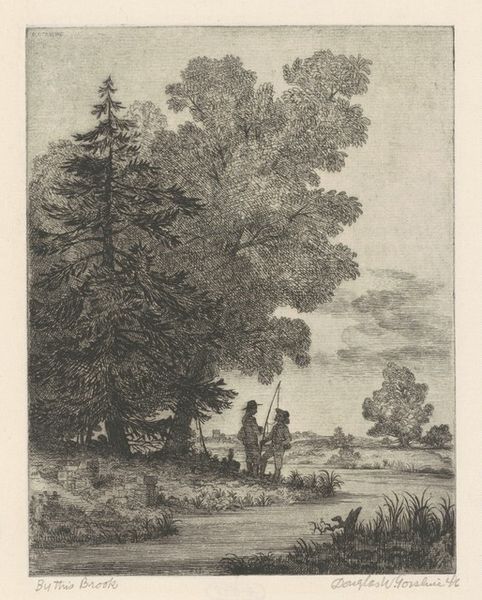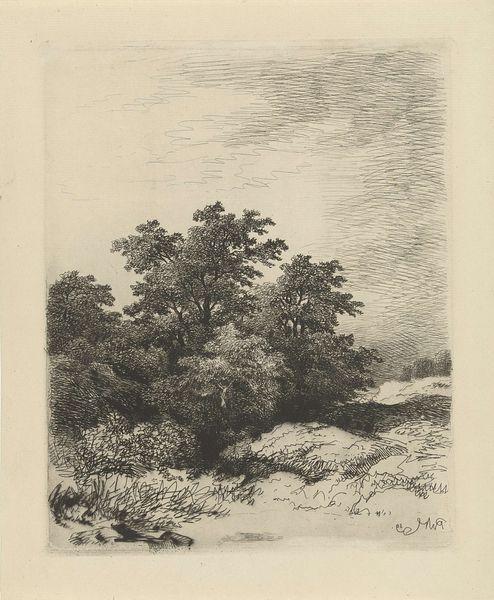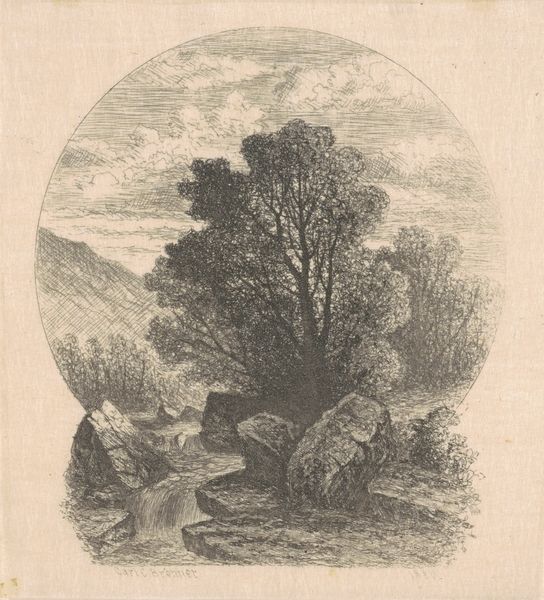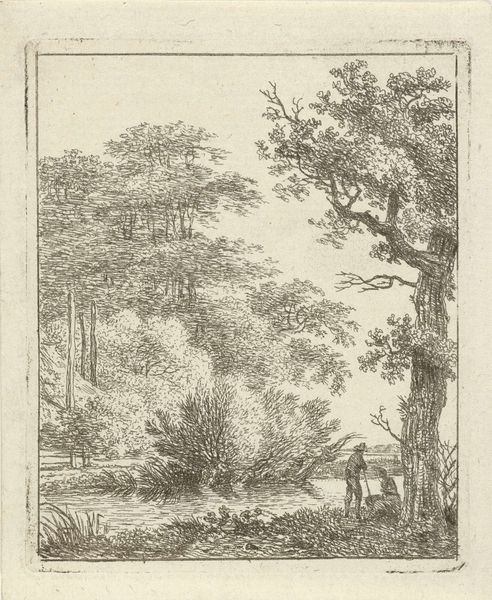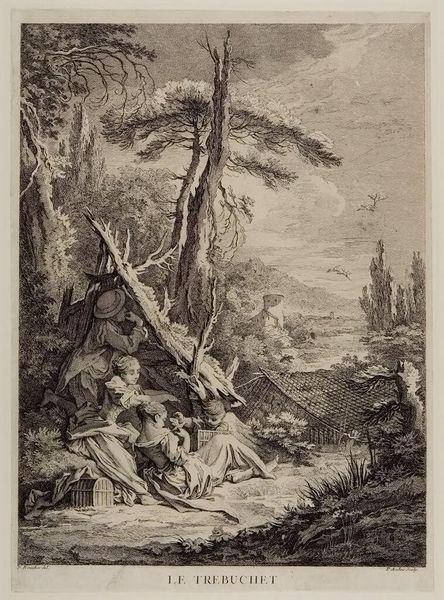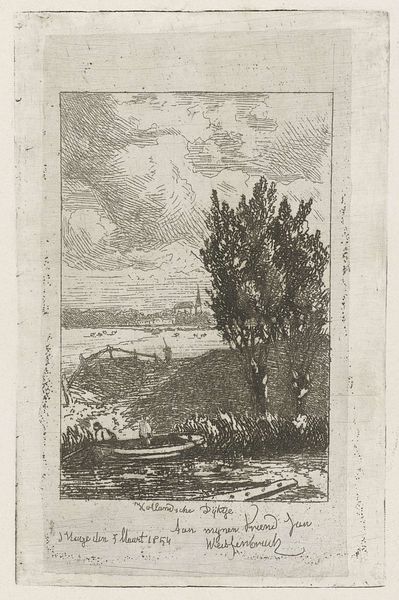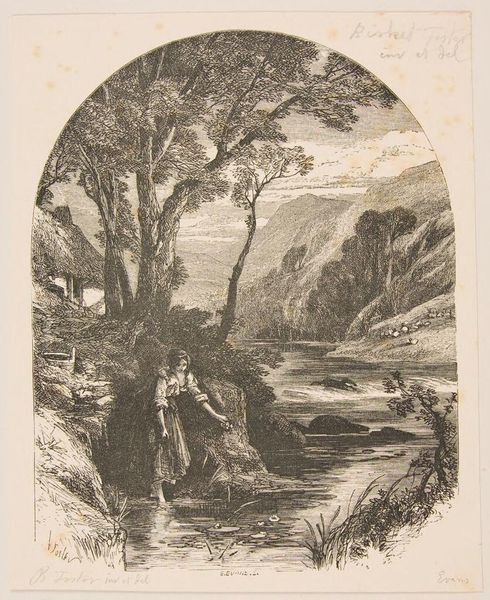
Copyright: CC0 1.0
Curator: This is "Angler's Morning" by W.T. Green, currently residing in the Harvard Art Museums. It depicts a solitary figure fishing at dawn. Editor: The meticulous etching creates a tranquil, almost nostalgic mood. I'm drawn to the density of the marks, building up the textures of water, foliage, and that expansive sky. Curator: The image reflects the burgeoning interest in leisure activities within the growing middle class. Fishing, once a necessity, becomes a pastime, a marker of status. Editor: I agree. And consider the materials: etching democratized image production. Prints like these made landscapes and scenes of leisure accessible to a wider audience, ready for consumption. Curator: Exactly. These images fostered a sense of shared national identity, linking leisure with a specific vision of idealized Britishness and a pastoral escape from industrialization. Editor: Thinking about it, there's a tension present. Nature is both a retreat and a resource, transformed through the angler’s activity. Curator: Precisely! It’s a complex interplay between recreation and the subtle subjugation of the natural world. Editor: It’s more than just a pretty picture then. This piece prompts us to reflect on the historical shifts in labor, leisure, and the commodification of experience.
Comments
No comments
Be the first to comment and join the conversation on the ultimate creative platform.
